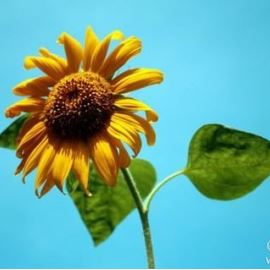| Chinese Summer Solstice Features Feminine Energy and Cold Noodles | |
|---|---|
| Jul 12, 2020 19:49 | |
 | The “夏至 (xiàzhì) summer solstice” is one of the 24 solar terms, which is held on June 24 of the gregorian calendar this year. Solar terms are a Chinese conception of the seasons and are relevant to astronomy. During the summer solstice, the sun is directed at the tropic of cancer when daylight is the longest time throughout the year across the northern hemisphere. In north of China, at the summer solstice, daytime is much longer than nighttime, but in the tropical south, the difference is only about 2 hours. The length of the daytime reaches 15 hours in Beijing and 17 hours at higher latitudes. For the tropic of cancer and the areas to the north, the summer solstice is also when the sun is at the highest point of the year. How will you most likely hear native speakers talk about summer? Take the examples below to practice your own conversations about summer. 夏天(xià tiān): summer jīn nián xià tiān yǔ shuǐ tài duō le. 今年夏天雨水太多了。 There was too much rain this summer. jīn nián xià tiān nǐ zhǔn bèi dào nǎ ér qù ? 今年夏天你准备到哪儿去? Where do you intend to go this summer? Custom activities The ”夏至 (xiàzhì) summer solstice” is the time for harvesting crops and thus worshiping the Earth. Since ancient times, there has been a custom of celebrating the harvest and it was associated with human sacrifice to the gods to pray for a good harvest. After the installation of the Han Dynasty, however, this practice was abolished. The days around the time of the summer solstice are also when wheat becomes ripe. Therefore , it also allowed people to enjoy tasting the new wheat harvest. 农作物 (nóng zuò wù) : crop Examples: shòu wū rǎn de shuǐ yuán huì jiàng dī nóng zuò wù chǎn liàng 受污染的水源会降低农作物产量. Polluted water lessens crop yields. wǒ men zhòng duō zhǒng nóng zuò wù , bāo kuò bái cài , xiǎo mài hé dà mài 我们种多种农作物,包括白菜、小麦和大麦. We grow a variety of crops, including cabbages, wheat, and barley. Seasonal Customs There are Yin and Yang in ancient Chinese philosophy and can be understood as “cold” and “hot”. Ancient Chinese saw the summer solstice as an expression of yin, feminine energy, which is balanced by the yang, or masculine energy, of the winter solstice. In summer, the sun prevails and Yin energies come into being while Yang energies begin to wane. Since food in China is always a big part of every festival, there is a saying which goes, “eat dumplings on the winter solstice and eat noodles on the summer solstice.” People in different areas of Shandong province eat chilled noodles on this day. Other people around China, including those in Beijing, also have a tradition of eating noodles. After the summer solstice, people begin a specific diet. The purpose of the diet is to clear away heat and increase appetite. Bitter food is one choice to flush toxins out of the body and then nourish the body. |
Post a Reply to: Chinese Summer Solstice Features Feminine Energy and Cold Noodles





 Copyright © 1998-2026 All rights reserved.
Copyright © 1998-2026 All rights reserved.